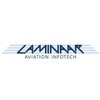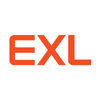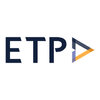Junior Business Analyst
20+ Junior Business Analyst Interview Questions and Answers

Asked in Nagarjuna Construction Company

Q. What were your responsibilities in your previous role?
In my previous role, I analyzed data, created reports, and collaborated with teams to improve business processes and decision-making.
Conducted data analysis to identify trends and insights, such as improving customer satisfaction by 15%.
Developed and maintained dashboards to track key performance indicators (KPIs) for management review.
Collaborated with cross-functional teams to gather requirements for new projects, ensuring alignment with business goals.
Assisted in the prepa...read more

Asked in Laminaar Aviation Infotech

Q. What is the difference between aircraft and airplane?
An airplane is a type of aircraft that is designed to be flown in the air with fixed wings and a jet or propeller engine.
Aircraft is a broader term that includes all types of vehicles that can fly in the air, including helicopters, gliders, and drones.
Airplanes are a specific type of aircraft that have fixed wings and are powered by a jet or propeller engine.
Airplanes are typically used for commercial and personal transportation, while other types of aircraft have different p...read more
Junior Business Analyst Interview Questions and Answers for Freshers

Asked in Laminaar Aviation Infotech

Q. What is the difference between a helicopter and a chopper?
Both refer to a type of aircraft, but 'helicopter' is the formal term while 'chopper' is a slang term.
Helicopter is the formal term for the aircraft that uses rotors to lift off the ground and move in any direction.
Chopper is a slang term for helicopter, often used in a casual or informal setting.
The term 'chopper' can also refer to a specific type of motorcycle that has been customized or modified.
In some cases, 'chopper' can also refer to a type of kitchen tool used for cho...read more

Asked in INVENTIVE SOFTWARE SOLUTIONS

Q. What do you know about smart metering or AMISP?
Smart metering refers to the use of advanced metering infrastructure (AMI) to track and manage energy consumption in real-time.
Smart metering allows for remote monitoring and control of energy usage
AMI systems enable two-way communication between the utility company and the meter
AMISP stands for Advanced Metering Infrastructure Service Provider
Smart meters can help consumers track their energy usage and make more informed decisions
Smart metering can lead to more efficient ene...read more

Asked in SoftTech Engineers Limited

Q. How do you handle yourself under pressure?
I stay calm, prioritize tasks, and communicate effectively to manage pressure and deliver results.
I practice deep breathing techniques to maintain composure during stressful situations.
In a previous project, I faced tight deadlines; I created a prioritized task list to focus on critical deliverables.
I communicate openly with my team to ensure everyone is aligned and can support each other under pressure.
I view pressure as an opportunity to showcase my problem-solving skills a...read more

Asked in SoftTech Engineers Limited

Q. Explain your day-to-day activities as a Business Analyst.
As a Junior Business Analyst, I support project teams by gathering requirements, analyzing data, and facilitating communication.
Gathering requirements from stakeholders through interviews and surveys, e.g., conducting a workshop to understand user needs.
Analyzing data to identify trends and insights, such as using Excel to create reports on customer behavior.
Creating documentation like business requirements documents (BRDs) and functional specifications, e.g., drafting a BRD ...read more
Junior Business Analyst Jobs




Asked in Digital Aptech

Q. What are the different documentations required as a business analyst?
Different documentations required as a business analyst include business requirements document, functional requirements document, use cases, process flow diagrams, and user stories.
Business Requirements Document (BRD) - outlines the business problem or opportunity and the proposed solution
Functional Requirements Document (FRD) - details the specific functions of the system or product
Use Cases - describe how users interact with the system to achieve specific goals
Process Flow ...read more

Asked in Digital Aptech

Q. Which technologies would you suggest for an e-commerce website?
For an e-commerce website, I would suggest technologies like Magento, Shopify, WooCommerce, and payment gateways like PayPal and Stripe.
Magento
Shopify
WooCommerce
PayPal
Stripe
Share interview questions and help millions of jobseekers 🌟


Asked in AltezzaSys

Q. What tools are you proficient in?
I am proficient in various analytical tools that enhance data analysis and visualization for informed decision-making.
Excel: Advanced functions like VLOOKUP, pivot tables, and data visualization tools.
Tableau: Creating interactive dashboards to visualize complex data sets.
SQL: Writing queries to extract and manipulate data from databases.
Power BI: Developing reports and dashboards for business insights.
Google Analytics: Analyzing web traffic and user behavior for marketing st...read more

Asked in INVENTIVE SOFTWARE SOLUTIONS

Q. What is the difference between real power and apparent power?
Real power is the actual power consumed by a circuit, while apparent power is the combination of real power and reactive power.
Real power is measured in watts and represents the actual power consumed by a circuit.
Apparent power is the combination of real power and reactive power, measured in volt-amperes.
The relationship between real power, apparent power, and reactive power is described by the power triangle.
In an ideal circuit with no reactive power, real power and apparent...read more

Asked in ValGenesis

Q. How in-depth is your knowledge in biotechnology?
My knowledge in biotechnology is intermediate level.
I have studied biotechnology as a part of my academic curriculum.
I have also worked on a project related to biotechnology during my internship.
I keep myself updated with the latest developments in the field through various journals and online resources.

Asked in ValGenesis

Q. How do you mass produce products in the pharmaceutical field?
Mass production in pharma involves several steps including formulation, testing, packaging, and distribution.
Develop a formulation for the drug
Conduct pre-clinical and clinical trials to test the safety and efficacy of the drug
Obtain regulatory approval from agencies such as the FDA
Establish a manufacturing process that can produce the drug in large quantities
Package the drug in appropriate containers
Distribute the drug to pharmacies, hospitals, and other healthcare providers

Asked in TCS

Q. What is your expected CTC?
I expect a competitive CTC that reflects my skills and the industry standards for a Junior Business Analyst role.
Research industry standards: For example, entry-level positions in my region typically offer between $50,000 to $70,000 annually.
Consider my skills: I have experience with data analysis tools like Excel and SQL, which can add value to my role.
Flexibility: I am open to discussing the CTC based on the overall compensation package, including benefits and growth opport...read more

Asked in ArisGlobal

Q. What was your previous CTC?
My previous CTC was competitive and reflective of my skills and experience in the business analysis field.
My previous CTC was INR 6,00,000 per annum, which included a base salary and performance bonuses.
I received a salary increment of 15% after my first year due to successful project completions.
The CTC also included benefits such as health insurance and a provident fund.

Asked in EXL Service

Q. Explain SVM algorithm, Mention some of the kernels.
SVM is a supervised machine learning algorithm used for classification and regression analysis. It finds the best hyperplane to separate data points.
SVM is based on the idea of finding a hyperplane that best divides a dataset into two classes.
It can be used for both classification and regression analysis.
Some of the popular kernels used in SVM are linear, polynomial, radial basis function (RBF), and sigmoid.
Linear kernel is used when the data is linearly separable, while RBF ...read more

Asked in 63 Moons Technologies

Q. Write an essay based on a current national incident and provide a suitable solution.
The rising issue of food insecurity in the U.S. demands immediate attention and innovative solutions to ensure access to nutritious food.
Food insecurity affects millions of Americans, with 10.5% of households experiencing it in 2020.
The COVID-19 pandemic exacerbated food access issues, leading to increased reliance on food banks.
Innovative solutions include community gardens, urban farming, and partnerships with local businesses to distribute surplus food.
Government programs ...read more

Asked in EXL Service

Q. Explain the difference between Precision and Recall.
Precision is the ratio of true positives to all predicted positives, while recall is the ratio of true positives to all actual positives.
Precision measures how accurate the positive predictions are, while recall measures how complete the positive predictions are.
Precision is important when the cost of false positives is high, while recall is important when the cost of false negatives is high.
A high precision means that when the model predicts a positive, it is likely to be co...read more

Asked in EXL Service

Q. Different layers of Deep Learning Architecture
Deep Learning Architecture has three layers: Input Layer, Hidden Layer, and Output Layer.
Input Layer receives input data and passes it to the Hidden Layer.
Hidden Layer processes the input data and passes it to the Output Layer.
Output Layer produces the final output based on the input data.
Each layer can have multiple nodes or neurons.
Examples of Deep Learning Architectures include Convolutional Neural Networks (CNNs), Recurrent Neural Networks (RNNs), and Deep Belief Networks...read more

Asked in The Brihaspati Infotech

Q. What do you mean by Business Analyst?
BA stands for Business Analyst, a professional who analyzes an organization or business domain and documents its business processes or systems.
BA stands for Business Analyst
They analyze an organization or business domain
They document business processes or systems
They bridge the gap between IT and business stakeholders

Asked in Digital Aptech

Q. Feature List for a E-Commerce website
Feature list for an E-Commerce website includes product search, shopping cart, secure payment gateway, user accounts, order tracking.
Product search functionality for easy navigation
Shopping cart for adding and managing items
Secure payment gateway for safe transactions
User accounts for personalized experience
Order tracking to monitor delivery status

Asked in The Brihaspati Infotech

Q. Draw a flowchart based on the following requirements.
Draw a flow chart based on given criteria
Identify the starting point of the process
List the steps involved in the process
Connect the steps with arrows to show the flow of the process
Include decision points if applicable
End the flow chart with the final outcome

Asked in The Brihaspati Infotech

Q. Explain the flowchart of Amazon.
Amazon's flow chart outlines the process of a customer browsing, selecting, purchasing, and receiving products.
Customer visits Amazon website or app
Customer searches for desired product
Customer adds product to cart
Customer proceeds to checkout and makes payment
Amazon processes order and ships product to customer
Customer receives product and may leave a review

Asked in ETP International

Q. What does omnichannel mean?
Omnichannel refers to a seamless and integrated approach to customer experience across all channels.
Omnichannel involves providing a consistent experience for customers across multiple channels such as online, mobile, and in-store.
It focuses on creating a unified customer journey, allowing customers to interact with a brand through various touchpoints.
Examples include a customer starting a purchase online and completing it in-store, or receiving personalized recommendations a...read more

Asked in TCS

Q. What basic software are you familiar with?
I am familiar with various basic softwares.
Microsoft Office Suite (Word, Excel, PowerPoint)
Google Suite (Docs, Sheets, Slides)
Adobe Acrobat Reader
Windows and Mac OS
Internet Browsers (Chrome, Firefox, Safari)
Antivirus Software (Norton, McAfee, Avast)

Asked in BNY

Q. Explain the Trade Life Cycle.
The Trade Life Cycle encompasses all stages of a trade from initiation to settlement, ensuring smooth transaction processing.
1. Trade Initiation: The process begins when a trader decides to buy or sell a security.
2. Order Execution: The order is sent to the market, where it is matched with a counterparty.
3. Trade Confirmation: Both parties receive confirmation of the trade details, including price and quantity.
4. Clearing: The trade is processed to ensure that both parties fu...read more

Asked in INVENTIVE SOFTWARE SOLUTIONS

Q. What is the formula for calculating power factor?
Power factor is calculated by dividing the real power (kW) by the apparent power (kVA).
Power factor = Real Power (kW) / Apparent Power (kVA)
Power factor is a measure of how effectively electrical power is being used in a system.
A power factor of 1 indicates all the power is being used effectively, while a power factor of 0 means none of the power is being used effectively.

Asked in Accenture

Q. Introduce yourself.
I am a detail-oriented Junior Business Analyst with a passion for data-driven decision-making and a background in project management.
Educational Background: I hold a degree in Business Administration, where I focused on data analysis and project management.
Internship Experience: I completed an internship at XYZ Corp, where I assisted in analyzing market trends and improving operational efficiency.
Technical Skills: Proficient in Excel, SQL, and data visualization tools like Ta...read more
Interview Questions of Similar Designations
Interview Experiences of Popular Companies








Reviews
Interviews
Salaries
Users

















